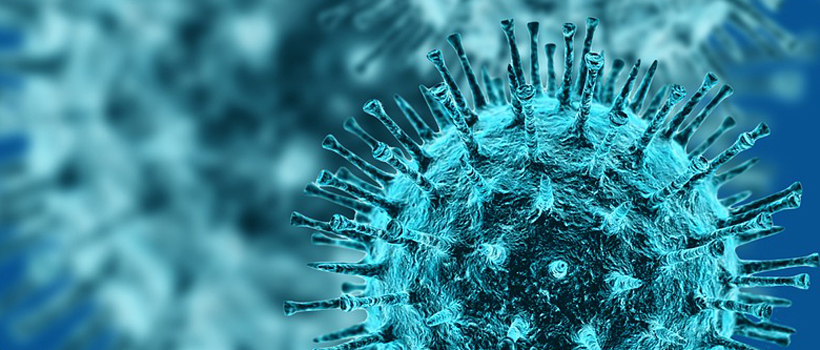Effective factory hygiene for SARS-CoV-2 (COVID-19)

To discuss your needs
Coronavirus can be reintroduced to your workplace with every shift change. Being airborne makes it challenging to control.
The HSE direct employers’ focus to:
- Risk Assessment
- Social Distancing
- Cleaning, Hygiene and Handwashing
- Talk to workers and provide information
- Vulnerable workers
We hear from our clients that communications have proved particularly important and this will certainly continue to be the case to retain worker attention and vigilance as the vaccine is gradually introduced in 2021.
|
|
Special Challenges |
Campden BRI Monitoring Services |
|
HACCP |
Coronavirus is a new hazard to add to your list. It is unusual in that it can be unknowingly introduced every day by people and in that it is airborne. Its Critical Limit is zero. It survives for up to 72 hours on some surfaces so must be treated as a potential risk. Review goods-inwards processes. |
Training – HACCP Training – Viral Contamination Health and Safety Training Course |
|
Ventilation and Air Conditioning |
Some systems claim to be effective against SARS CoV-2 but no fully proven systems are known to us at this time |
If you wish to test a novel system, our Coronavirus Decontamination Testing service, which uses a surrogate Coronavirus, can prove its efficacy in our lab or on your site |
|
Cleaning |
Airborne virus transmission: PPE will not totally prevent airborne particles from transferring to touched surfaces. Increase cleaning between shifts and of high frequency touch points. Be rigorous everywhere to identify these touchpoints, including machinery and on/off buttons that are frequently touched and beyond the factory floor from doorhandles to forklift and pallet trucks. |
Check your cleaning regime is effective with Campden BRI Covid19 Challenge Testing. This introduces a safe surrogate of Coronavirus to your workplace then checks your cleaning destroys all particles. Check if Coronavirus has arrived in your workplace with Campden BRI’s Covid19 Surface Swab Testing. |
|
Hand Hygiene |
Reinforce hand hygiene policy – this hand washing video is our most popular; feel free to circulate to your teams. New handwashing regimes will be needed when touching any items that have come in from outside within 72 hours. |
|
|
PPE |
This virus is airborne. PPE is helpful but does not totally prevent transmission into the air. |
|
|
Waste Collections from shop floor |
Increase frequency as Coronavirus can survive at least 48-72 hours and waste could harbour the virus. |
|
|
Workforce Infection |
Early identification of infected workers who are pre-symptomatic or asymptomatic is now practicable with Campden BRI’s competitively priced super-sensitive PCR tests available through our Covid19 Early Detection Workforce Testing. |
Deep Clean
|
a |
Health and Safety |
Avoid creating splashes and spray when cleaning |
|
b |
Planning |
Plan carefully - it should be for an entire area not just the equipment as Coronavirus spreads through the air as well as by touch, and cleaning needs to be thorough to destroy it. |
|
c |
Staffing |
Ensure correct number of trained staff are available; extra untrained labour is a hindrance not a help |
|
d |
Detergent, disinfectant |
Check with product supplier for their instructions. Cleaning should include detergent followed by disinfectant. Detergents remove soiling, so should effectively remove Coronavirus. For detergent contact times to ensure efficacy , ask your product supplier. Not all disinfectants meet European standards for killing Covid virus EN14476 so check your supplier has proof from Campden BRI or another testing body. |
|
e |
Process |
Work top down, systematically cleaning from high levels down to floor |
|
f |
Equipment Cleaning |
Needs to be carried out to standards above and beyond a normal daily clean:
|
|
g |
Drains and floors |
Clean drains, drain covers and floors |
|
h |
Walls, Ceilings, Fittings |
Coronavirus is airborne and can reach all surfaces |
|
i |
Verify |
For Deep Cleans prompted because Coronavirus was present: Campden BRI Surface Swab Tests can verify surfaces are now Coronavirus free. For Deep Cleans as routine: Campden BRI Coronavirus Challenge Testing of Cleaning Regimes can ‘infect’ your premises with a safe Coronavirus surrogate prior to your deep-clean then verify that your regime has effectively destroyed all particles. |
Regulations in force when bringing equipment and facilities back into use
If you’re ramping up production or bringing back machinery and facilities into service which have temporarily mothballed, you must look closely at your environmental monitoring.
Clause 4.11.8 of BRCGS Issue 8 on environmental monitoring states: “Risk-based environmental monitoring programmes shall be in place for pathogens or spoilage organisms. At a minimum, these shall include all production areas with open and ready-to-eat products.”
Critical here is a sub-clause (4.11.8.3) which states that environmental monitoring programmes must be reviewed annually or when there have been “changes in processing conditions, process flow or equipment”. If you’ve had to shut things down or limit production, an increase in environmental contaminants, both bacterial and fungal during closure is a distinct possibility, hence your environmental monitoring programme (EMP) will need to be reviewed.
The clause and the need to revisit your EMP also applies to “new developments in scientific information” - in this case the emergence of SARS-CoV-2 and COVID-19. So, even if you haven’t changed your manufacturing capacity, you’ll need to revisit your programme.
Testing regimes for work in progress (WIP), finished products and raw materials in line with clauses 5.6.1.1 and 3.5.2.1 of BRCGS Issue 8 may need to be reviewed and made more robust during this period along with those for outsourced components, in clause 3.5.4.4.
We can help you review your EMP. If you need support, feel free to contact Nigel Blitz or Richard Leathers for information and prices.
Key contacts

About Nigel Blitz
Nigel Blitz joined Campden BRI as a food management systems specialist in 2019 following more than 20 years’ experience as a food, hygiene and quality manager across a broad range of food and beverage manufacturing environments.
Nigel helps the industry by providing consultancy in environmental monitoring, internal factory design (to ensure it complies with BRCGS) and other factory hygiene-related issues. In addition to this, Nigel also teaches on food technology and microbiology courses and helps update guidance on the cleaning and disinfection of food factories.

About Richard Leathers
Richard Leathers joined Campden BRI in September 2011, and has worked in the food industry for 4 decades.
Richard started working with Dairy Crest and subsequently worked for both Heinz, Unilever, Best Foods and Kanes Foods. Working in the areas of HACCP and Quality Management Systems, Richard also has experience within the fresh produce sector, as well as analysis systems in the milling / baking areas, and is a BRCGS qualified lead auditor.
Richard has contributed to several publications and guidelines, including those for TACCP, VACCP and HACCP / Risk Evaluation and is also trained at advanced level by EHEDG (European Hygienic Engineering Design Group).
Hygiene training courses
Explore our hygiene related courses including; Allergen control and Food processing hygiene management
Are you getting the most from your Membership?
Watch our membership FAQ videos and find out more about Member Service Account spending, Member Interest Groups, help and advice
Where we refer to UKAS Accreditation
The Campden BRI group companies listed below are accredited in accordance with the recognised International Standard ISO17025:2017 by the United Kingdom Accreditation Service (UKAS). The accreditation demonstrates technical competence for a defined scope of methods, specific to each site, as detailed in the schedules of accreditation bearing the testing laboratory number. The schedules may be revised from time to time and reissued by UKAS. The most recent issue of the schedules are available from the UKAS website www.ukas.com. Campden BRI (Chipping Campden) Limited is a UKAS accredited testing laboratory No. 1079

